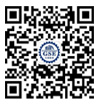Speaker
Marijk van der Wende is Distinguished Professor of Higher Education at Utrecht University's Faculty of Law, Economics and Governance. Her research focuses on the impact of globalization and internationalization on higher education systems, institutions, curricula, and teaching and learning arrangements. She is also an affiliate faculty and research associate at the Center for Studies in Higher Education (CSHE) at the University of California Berkeley. She is member of: the Academy of Europe (Academia Europaea, section behavioural sciences); the International Advisory Board of the Centre for the Study of World Class Universities, Shanghai Jiao Tong University; the Graduate Campus Advisory Board of the University of Zurich; the Advisory Board of the Centre for Global Higher Education, based at the Institute of Education, University College London; the Supervisory Board of the Open University of the Netherlands, the Board of the Rathenau Institute for Science and Technology in Society, and the Board of the Amsterdam University College Scholarship Fund (ASF Foundation).
Time
10:00-11:30, April 10th, 2019
Venue
Room 242, Chen Ruiqiu Bldg
Abstract
From the end of the 20th century onwards, internationalization of higher education has been increasingly contextualized by globalization, with key (neo-liberal) trends of deregulation, liberalization and privatization towards a globally competitive knowledge economy, enhancing the role of higher education in developing human capital, knowledge, and innovation for domestic economic growth and global competition. In the 21st century, the perspective on globalization in the East seems to be diverging from that in the West. Consequently, we need to further our understanding of the similarities and differences in politics between globalization East and West and how these are affecting internationalization of higher education. This chapter will examine cooperation between the European Union and China in terms of its history, rationales, goals, mechanisms & instruments, and effects. To what extent are the EU's and China's policies for internationalisation of higher education, research and innovation driven by common (global) goals, i.e. what is the contribution to the global common good? What are the patterns of cooperation and competition, convergence or divergence? Are flows, partnerships and conditions for cooperation becoming more balanced? If globalization is shifting, are new paradigms for internationalization of higher education emerging? Are the neo-liberal trends in the West being challenged or even replaced by Eastern alternatives?


